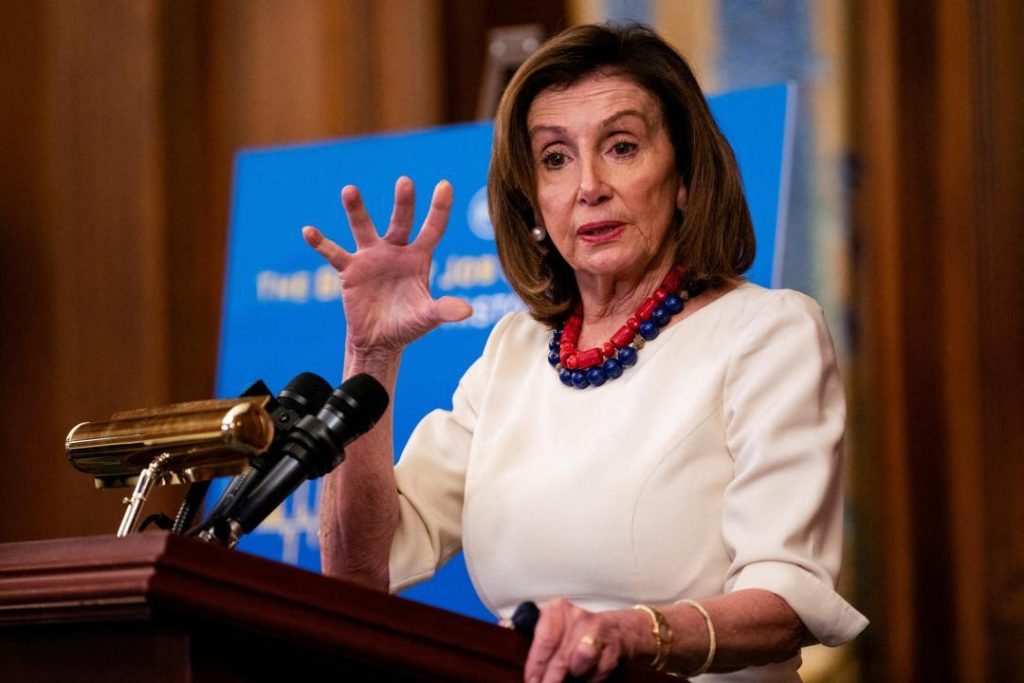
What is the PELOSI Act & why is it named after former US Speaker Nancy Pelosi?
The PELOSI Act, formally known as the Preventing Elected Leaders from Owning Securities and Investments (PELOSI) Act, is a bill that aims to prohibit lawmakers and their spouses from holding or dealing in stocks while holding office. The Act, reintroduced by US Senator Josh Hawley, is designed to prevent conflicts of interest and ensure that elected officials prioritize the interests of the country over their personal financial gains.
But why is the Act named after former US Speaker Nancy Pelosi? The answer lies in the controversy surrounding Pelosi’s significant stock market gains during her term as Speaker. Pelosi’s husband, Paul Pelosi, made millions of dollars in stock trades while Nancy Pelosi was in a position to influence financial policy. This raised concerns about potential conflicts of interest and the potential for lawmakers to use their positions to further their personal financial interests.
The PELOSI Act is a response to these concerns, aiming to prevent similar situations from arising in the future. Under the Act, lawmakers would be allowed to invest in mutual funds (MFs), exchange-traded funds (ETFs), and Treasury bonds, but would be prohibited from trading individual stocks or other securities.
The bill is not without its critics, however. Some argue that it is an overreach of government power and that it would prevent lawmakers from making informed investment decisions. Others argue that the Act is too narrow, as it does not address other potential conflicts of interest, such as real estate investments or business partnerships.
Despite these criticisms, the PELOSI Act has received widespread support from both Democrats and Republicans. The bill is seen as a step towards increasing transparency and accountability in government, and towards preventing the kind of conflicts of interest that can undermine trust in government.
So, why is the Act named after Nancy Pelosi? The answer is simple: it is a nod to the controversy surrounding her husband’s stock trades during her term as Speaker. The Act is a response to the concerns raised by those trades, and a attempt to prevent similar situations from arising in the future.
The PELOSI Act is not the first attempt to address conflicts of interest in government. In the 2012 election cycle, for example, several lawmakers faced criticism for their stock trades and potential conflicts of interest. In response, the Stop Trading on Congressional Knowledge Act (STOCK Act) was passed, prohibiting lawmakers and their staff from buying or selling stocks based on non-public information.
The PELOSI Act goes further than the STOCK Act, however, by prohibiting lawmakers from holding or dealing in stocks altogether. This is seen as a more comprehensive solution to the problem of conflicts of interest, as it would prevent lawmakers from having any financial stake in individual companies or industries.
The PELOSI Act is not without its challenges, however. One of the biggest challenges is implementing a system to track and enforce the new restrictions. This would require significant changes to the way lawmakers are allowed to invest their money, and would likely involve the creation of new rules and regulations.
Another challenge is ensuring that the Act does not inadvertently create new conflicts of interest. For example, some lawmakers may argue that the Act’s restrictions on individual stocks would prevent them from making informed investment decisions. Others may argue that the Act’s restrictions on business partnerships and real estate investments are too narrow, and that they do not address other potential conflicts of interest.
Despite these challenges, the PELOSI Act is an important step towards increasing transparency and accountability in government. By prohibiting lawmakers from holding or dealing in stocks, the Act aims to prevent conflicts of interest and ensure that elected officials prioritize the interests of the country over their personal financial gains.
In conclusion, the PELOSI Act is a critical step towards increasing transparency and accountability in government. By prohibiting lawmakers from holding or dealing in stocks, the Act aims to prevent conflicts of interest and ensure that elected officials prioritize the interests of the country over their personal financial gains. The Act is named after Nancy Pelosi, whose husband’s stock trades during her term as Speaker raised concerns about potential conflicts of interest.
The PELOSI Act is not without its challenges, however. Implementing a system to track and enforce the new restrictions will be a significant task, and ensuring that the Act does not inadvertently create new conflicts of interest will require careful consideration. Despite these challenges, the PELOSI Act is an important step towards increasing transparency and accountability in government, and towards preventing the kind of conflicts of interest that can undermine trust in government.



